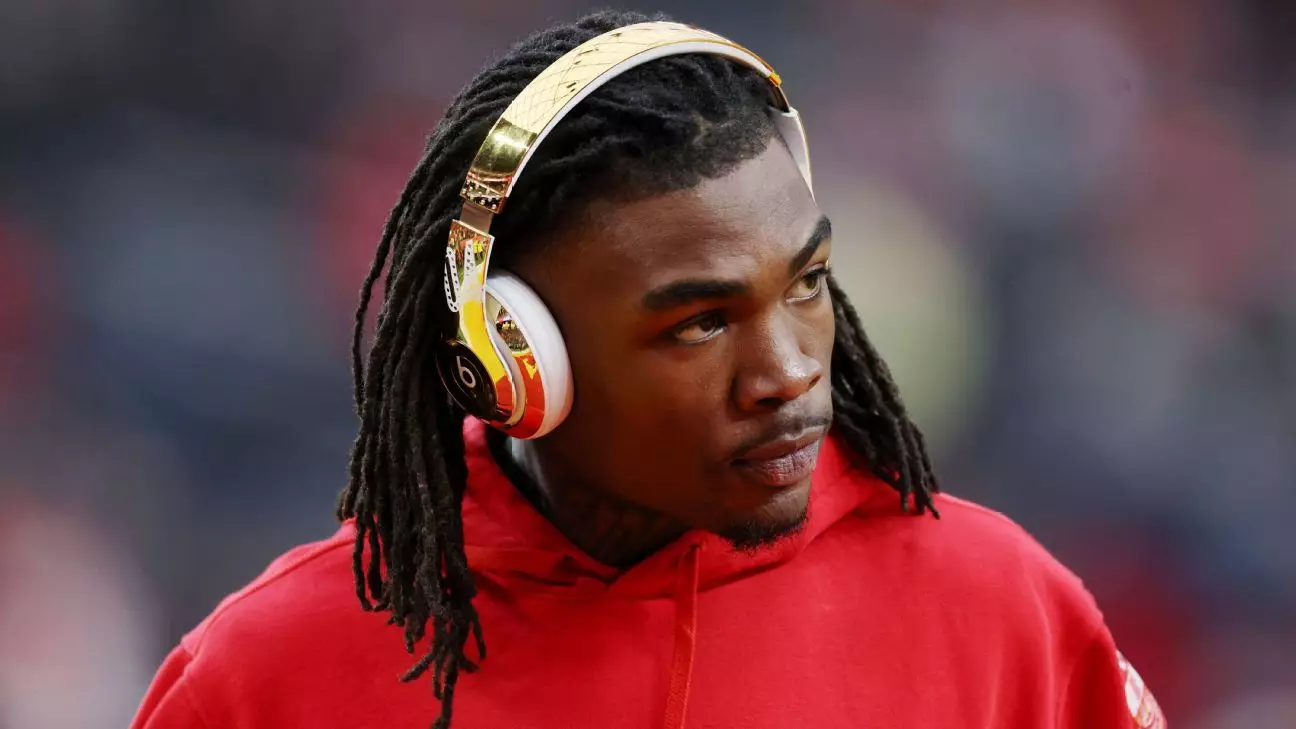The recent legal troubles of Kansas City Chiefs wide receiver Rashee Rice expose a troubling pattern that underscores the dangerous disconnect between celebrity privilege and societal responsibility. Rice’s decision to indulge in excessive speed—reaching 119 mph in a Lamborghini—places not only himself at risk but also innocent bystanders. Despite his youth and rising career, his actions reflect an alarming disregard for public safety. The fact that someone with Rice’s platform and resources can essentially escape severe consequences—serving only 30 days and five years probation—raises critical questions about accountability in our justice system and whether fame offers a shield from the repercussions of reckless behavior.
The Illusion of Impunity and the Impact on Society
Race’s case is emblematic of a broader societal issue: the perception that those with wealth and fame can manipulate the system. His payment of over $115,000 in restitution and deferred adjudication might seem like enough on paper, but these measures risk fostering an environment where irresponsible conduct is excused under the guise of redemption. The real damage, however, is far deeper. It perpetuates a dangerous message—why should influential figures tighten their grip on responsibility if the system rewards minimal consequences? This kind of leniency can foster complacency and a false sense of invincibility among young athletes and celebs, ultimately undermining the principles of justice and public safety.
Sports Stars as Role Models—A Lofty Expectation
Rice’s statement expressing remorse, while seemingly sincere, cannot fully undo the potential harm his reckless driving could have caused. His acknowledgment of the danger is a start, but it is ultimately hollow when juxtaposed against the behavior that prompted it. Athletes like Rice are more than entertainers; they are role models with a moral obligation to uphold safety and integrity. Their actions ripple beyond the field, influencing young fans and communities. When they flout traffic laws at such high speeds, it sends a damaging message: that progress and success can come at the expense of others’ lives and well-being. This disconnect between words and deeds highlights a deeper issue endemic in our society—that luxury and fame often shield individuals from facing the real consequences of their actions.
The NFL’s Dilemma and the Broader Cultural Context
The NFL’s response to Rice’s legal issues appears cautious yet pragmatic; disciplinary measures are likely imminent, but there’s a palpable delay that reflects a broader societal tendency to minimize the gravity of such misconduct. This situation exemplifies the paradox of sports culture, where athletic achievement often overshadows moral lapses. The league’s hesitation to act swiftly may embolden other players to dismiss alcohol, speed, or reckless behavior, perpetuating a cycle where accountability is secondary to performance and profit. These incidents reveal a troubling cultural pattern—celebrity athletes often receive a slap on the wrist, reinforcing the notion that their personal failings are secondary to their public image and economic value.
A Call for Greater Accountability in a Forgiving Society
The central issue lies in our collective tendency to forgive and forget, especially when it involves high-profile individuals. Rice’s case serves as a stark reminder that society must demand more than superficial remorse. Genuine accountability entails accepting real consequences—personal, legal, and social—that reinforce the importance of responsibility. It also underscores a need for systemic change: perhaps stricter laws for reckless driving, or a culture that values humility over hubris when it comes to fame. Society should view these incidents not solely through the lens of legal justice but as opportunities to reinforce moral standards that prioritize human safety above fleeting notions of ego and wealth.
The narrative surrounding Rashee Rice exemplifies the troubling complacency that allows reckless behavior to persist among privileged figures. As fans, citizens, and spectators, believing that fame confers immunity is a dangerous illusion that must be challenged. It’s time to hold celebrities accountable, not just when they are caught, but consistently—demonstrating that reckless decisions have real, lasting consequences that cannot be masked by monetary restitution or fleeting public apologies.



Leave a Reply